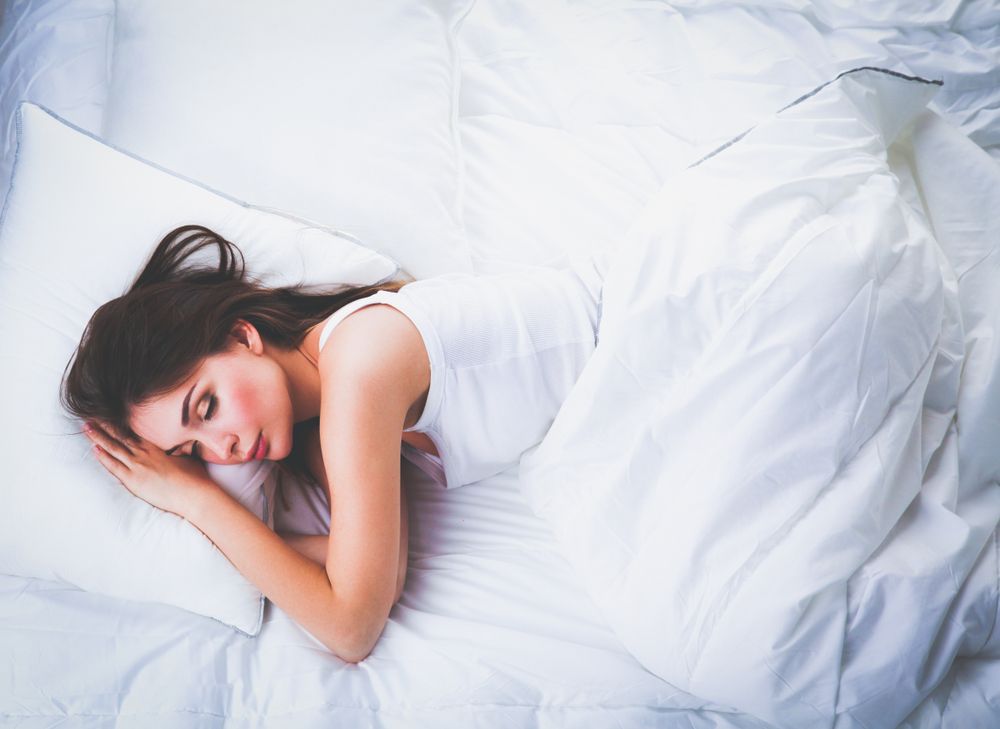


“If you snore or have sleep apnoea, your side will be better because your anatomy will fall towards the front of your mouth. Data shows most people sleep on their side. “If you are trying to get the deepest sleep and you do not have sleep apnoea, then on your back is probably the best way to go,” Bruce advised. “Poor sleep posture will make it so that when you wake up you are aching and in pain, you will get stiffness in your joints and certain pressure points.” Sleeping positionsĪccording to a 2017 study, 54 per cent of people sleep on their side, 37 per cent on the back and about 7 per cent on their front or stomach. “Sleep posture is the same idea here and it requires three things: you have to have the right sleep position, you have to have good sleep equipment, and you need to be mindful of your body’s natural alignment from head to toe.

you are likely to feel good throughout the day, however if your posture is bad and you are slumped over, you’ll feel pain and not so great during the day.” Not all of us are getting the right amount or quality of sleep. “Think about it this way, how you carry yourself while you are awake is a key factor in how you perform throughout the day,” The Sleep Doctor, Dr Michael Bruce told Sunrise.
#Dream but dont sleep for free
Solms believes the study will give dream researchers a specific area of the brain to test: "This may allow us to finally pin down the function of dreaming.Watch Sunrise on Channel 7 and stream it for free on 7plus > "This is a much better documented, more precise, and therefore more convincing study than anything that has come before," says Mark Solms, a neuropsychologist and dream expert at the University of Cape Town in South Africa. Bischof and Bassetti describe their results in the online 10 September Annals of Neurology. The brain can apparently compensate, too 3 months after the stroke, the patient began experiencing short dreams. Because the patient was otherwise normal, Bassetti notes that the study challenges the belief that dreaming is necessary for mental well-being. "This finding provides more evidence that these are separate events," says Bassetti, now at the University Hospital in Zurich, Switzerland. Since the 1953 discovery that REM sleep is associated with dreaming, neurologists have argued about whether the two processes are actually linked. This region processes emotions and visual memories.īrain-wave analysis of the patient's sleep patterns uncovered another surprise: The patient had a normal cycle of rapid eye movement (REM) sleep. Despite her dream loss, the woman had no other neurological abnormalities, and thus the researchers concluded that the area of the brain affected by the stroke-revealed by magnetic resonance imaging (MRI) scans to be the right inferior lingual gyrus-is critical for dreaming. The researchers woke the patient up at various points during her sleep cycle and found that she couldn't recall any dreams-evidence that she had lost the ability to dream rather than the ability to remember her dreams. When neurologists Matthias Bischof and Claudio Bassetti began examining their 73-year-old stroke patient at the University Hospital of Bern in Switzerland, they realized they had a unique opportunity to solve the mystery. However, most of the patients also experienced other physical problems or were not given comprehensive neurological examinations, making it difficult for researchers to pinpoint these dream machines. Over the last century, studies of brain damage located specific regions that seem to be responsible for generating dreams. Whereas psychologists have long debated the meaning of dreams, neurologists have focused on their origins. The findings may help resolve decades of controversy in the field of dream research and shed new light on the purpose of dreams. Now researchers believe the case provides the first compelling evidence that a small region deep in the back of the brain is critical for dreaming. In 1997, a 73-year-old woman stopped dreaming after suffering a stroke.


 0 kommentar(er)
0 kommentar(er)
